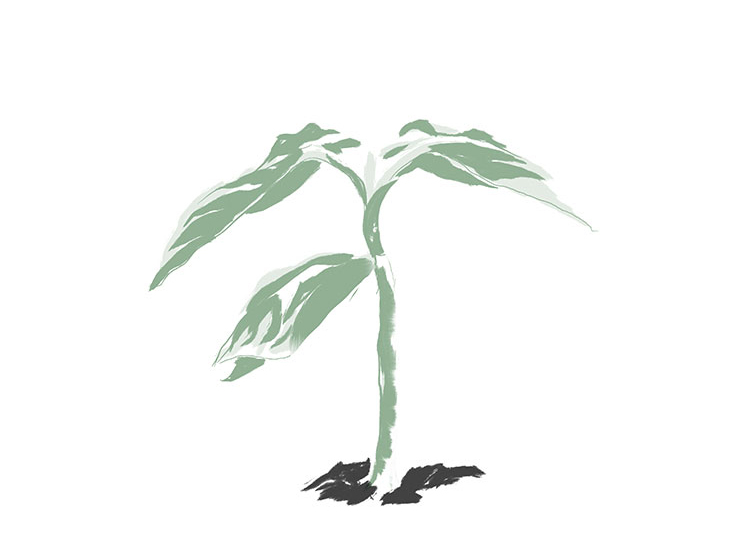Article by Kering | 02.19.2021
Kering Biodiversity Strategy – Stage 3: Restore & Regenerate
Kering’s Biodiversity strategy focuses on three goals: stemming biodiversity loss; restoring ecosystems and species; and sparking systemic change that goes above and beyond Kering’s supply chains.
To achieve these goals, they have structured their strategy into four stages:
In order to help shift the industry paradigm that merely seeks to minimize negative impacts, Kering acts to restore and regenerate ecosystems through nature-based solutions in its sourcing locations, which cover biodiversity and carbon benefits. This work is often done in partnership with agricultural scientists, botanists and foresters through carefully- planned interventions grounded in science.

Kering’s commitments
• By 2025, regenerate one million hectares of farms and rangelands in the supply chain landscapes, prioritizing interventions that offer both biodiversity and carbon benefits. The Group will accomplish this through the recently-launched Conservation International/Kering Fund for Regenerative Agriculture (, with a focus on the materials with the highest environmental impacts according to our EP&L: leather, cotton, cashmere and wool. This represents about 3 times Kering’s total land footprint.
• By 2025, restore habitats where mining and other extractive activities occurred, restoring an area three times larger than the Group’s total ‘direct’ footprint (which includes all stores, warehouses and offices).
• Expand the ‘basket of materials’ used by the Houses, by identifying, sourcing and scaling forgotten plant varietals and livestock breeds in its supply chain, thereby improving agricultural resilience and moving away from an industry that is overly reliant on monocropping. By 2025, increase the offerings of such materials at its Materials Innovation Lab.

Spotlight on ongoing work: Restoring former gold mining sites
In French Guiana, Kering is working with conservation partners Solicaz and Forest Finance to reforest a former alluvial gold mining site. This project goes beyond regulatory requirements (which mandate that 30% of former mines must be restored), and instead focuses on 100% restoration, making it the first full reforestation program of a mining site in the Amazon. Beginning with detailed ecological assessments of local species, Kering’s partners began by creating in-situ plant nurseries, and preparing more than 90,000 seedlings to plant over 116 hectares. Solicaz reforestation experts first focused on species with high nitrogen-fixation potential that could act as ‘pioneer species’. Today, the systems are thriving, and the partners regularly monitor soil health, the quality of tree development, the appearance of spontaneous plant diversity and soil respiration. By focusing on full ecosystem restoration, this project not only restores habitat for local biodiversity, but also facilitates carbon sequestration. The Group is now inviting other brands to join forces to extend the work to other gold sites, as well as trying to launch similar initiatives in silver and platinum.

Spotlight on ongoing work: Building biodiversity through regenerative agriculture
With a new €5 Million Conservation International/Kering Fund for Regenerative Agriculture, the Group will support promising agriculture and rangeland projects throughout the world, with a focus on leather, cotton, wool and cashmere. Regenerative agriculture has the potential to completely transform the face of agriculture, and is grounded in the idea that we can replenish and strengthen ecosystems through improved farming and livestock rearing practices. Specifically, regenerative agriculture increases farm biodiversity, reduces agro-chemical inputs, improves soil water retention, enhances carbon sequestration and focuses on livelihood gains.
To date, Kering has supported a number of direct regenerative projects, including an innovative goat rangeland program in Mongolia connected to Kering’s cashmere supply chain, which is being implemented in partnership with the Wildlife Conservation Society. The Group is also partnering with the Savory Institute to promote and support the regenerative production of raw materials and utilize Savory’s pioneering methodology, Ecological Outcome VerificationTM (EOVTM) in its leather and fiber supply chains that come from grazing systems, such as wool and cashmere. More recently, Kering partnered with RARE and SouthPole on a cotton project in China to quantify carbon sequestration through improved practices. At an industry level, the Group works with its peers in food production via the One Planet Business for Biodiversity to identify potential cross-company projects in regenerative agriculture.
Learn more:
Explore the full Kering Biodiversity Strategy.